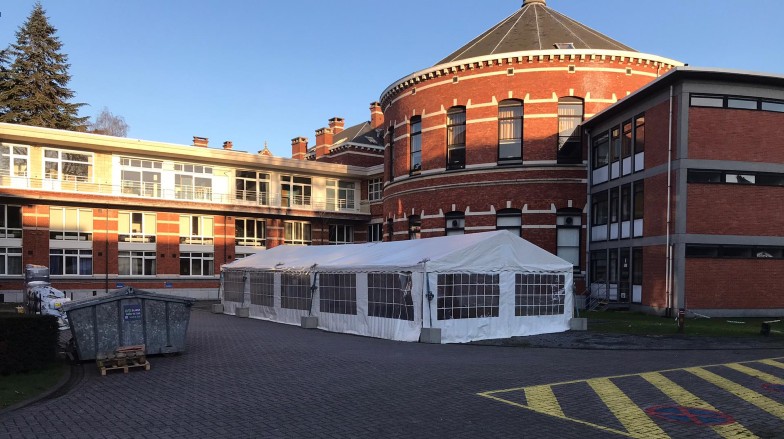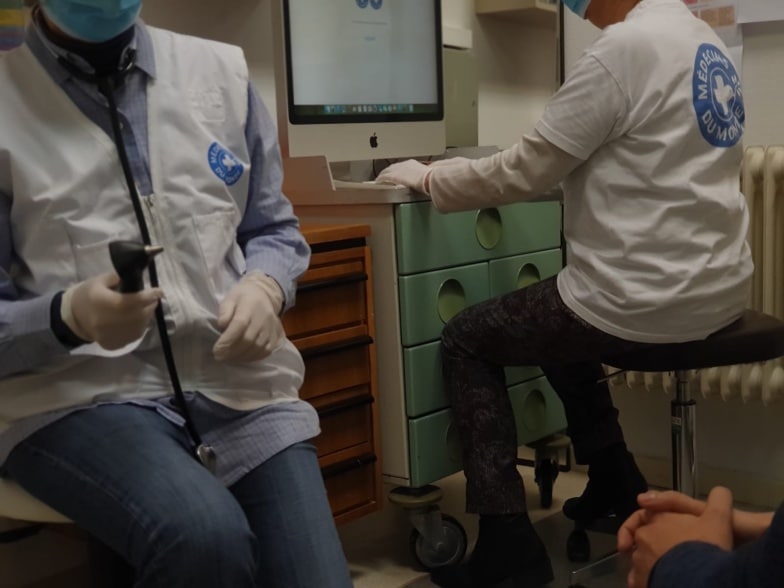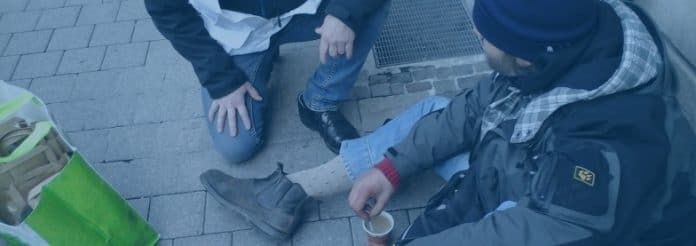Across Europe, people have been asked to stay at home to protect themselves and others from COVID-19. And yet many have no home to go to.
Refugees and homeless people are especially vulnerable in the context of the COVID-19 pandemic.
“These people have absolutely no means to carry out prevention measures against the virus. They cannot wash their hands or self-isolate given they have nowhere to stay,” explains Djoen Besselink, Head of Mission at Médecins Sans Frontières in Belgium.
Many are already in poor health, often as a result of poor living conditions. They are also often excluded from formal healthcare systems. Some countries, such as Belgium and France, have temporarily halted the processing of new asylum claims.
Urgent solutions
Governmental, non-governmental and citizens’ initiatives are working to find urgent solutions to help these marginalised groups.
In Portugal, migrants will be treated as permanent residents until June 30 to ensure access to public services during the outbreak. France has also extended expiring residence permits of asylum seekers by three months. The United Kingdom will stop evicting asylum seekers from Government accommodation while the country remains in lockdown. In the Netherlands, an army barracks has been transformed to welcome new arrivals. In Belgium, empty hospitals and schools have been transformed into temporary reception centres.
Emergency funding and temporary accommodation
Youth hostels, hotels and sport facilities are being taken over by authorities across the continent to house those without a home. In Hungary and Austria, as in France, Spain and Belgium, there is a moratorium on evictions to prevent more people becoming homeless. The United Kingdom has told local authorities to house everyone living on the streets. There are concerns, however, that some shelters across Europe are not able to enforce physical distancing.

Temporary centres have also been set up to provide a space for those who are infected but healthy enough to recover outside of hospital. Médecins Sans Frontières has set up a 50-bed facility in Brussels. Across France, 40 such sites have been set up. In Luxembourg, NGO Médecins du Monde has kept open its medical centres for those who are excluded from the system. In Denmark, a bus is sent on the streets of the capital region to test for the virus among homeless people. The ‘Karuna’ taskforce in Berlin drives around the city checking people’s temperatures.

Governments have also released emergency funding, including a voucher system worth 15 million euros for 60,000 homeless people to purchase essential items in France. The UK Government announced £3.2 million in emergency funding. In Brussels, four million euros has been released to help the homeless sector.
Support networks under strain
Support networks for the homeless are also under strain. Street donations have dried up due to government-imposed lockdowns. Many of the services homeless people rely on, including access to soup kitchens or hygiene facilities, have been cut off due to a shortage of volunteers and physical distancing restrictions. The People’s Kitchen in the UK has estimated it has lost up to 30% of its volunteer workforce.
In Spain, community canteens will be made available to distribute food for takeaway. Social services in the country are creating units that will distribute hygiene kits as well as food and drinks. An old swimming pool complex in Brussels has opened its shower facilities for the homeless.
Innovative citizen-led solutions are also cropping up. In Germany and Italy, people are filling shopping bags with food and hanging them in designated areas for homeless people to access. In the Netherlands, foundation Sheltersuit is handing out jackets which also function as sleeping bags.
Risk of stigmatization
FEANTSA, the European Federation of National Organisations Working with the Homeless, is concerned going forward there will be an increase in homelessness as people lose their jobs during the crisis. They also call for continued housing support once the pandemic is over.
There are also fears that homeless people risk being stigmatised, resulting in an increased sense of isolation.
“The homeless are not a source of infection for the rest of the population; they are the most at risk and most affected so we must protect them at all cost,” explains François Bertrand, Director of Bruss’help which coordinates emergency assistance to the homeless in Brussels.
As the United Nations Secretary-General António Guterres warns: “The most vulnerable — women and children, people with disabilities, the marginalized and the displaced — pay the highest price. They are also at the highest risk of suffering devastating losses from COVID-19.”
For more information for refugees, asylum-seekers and stateless people, visit UNHCR’s website.
Additional links:

